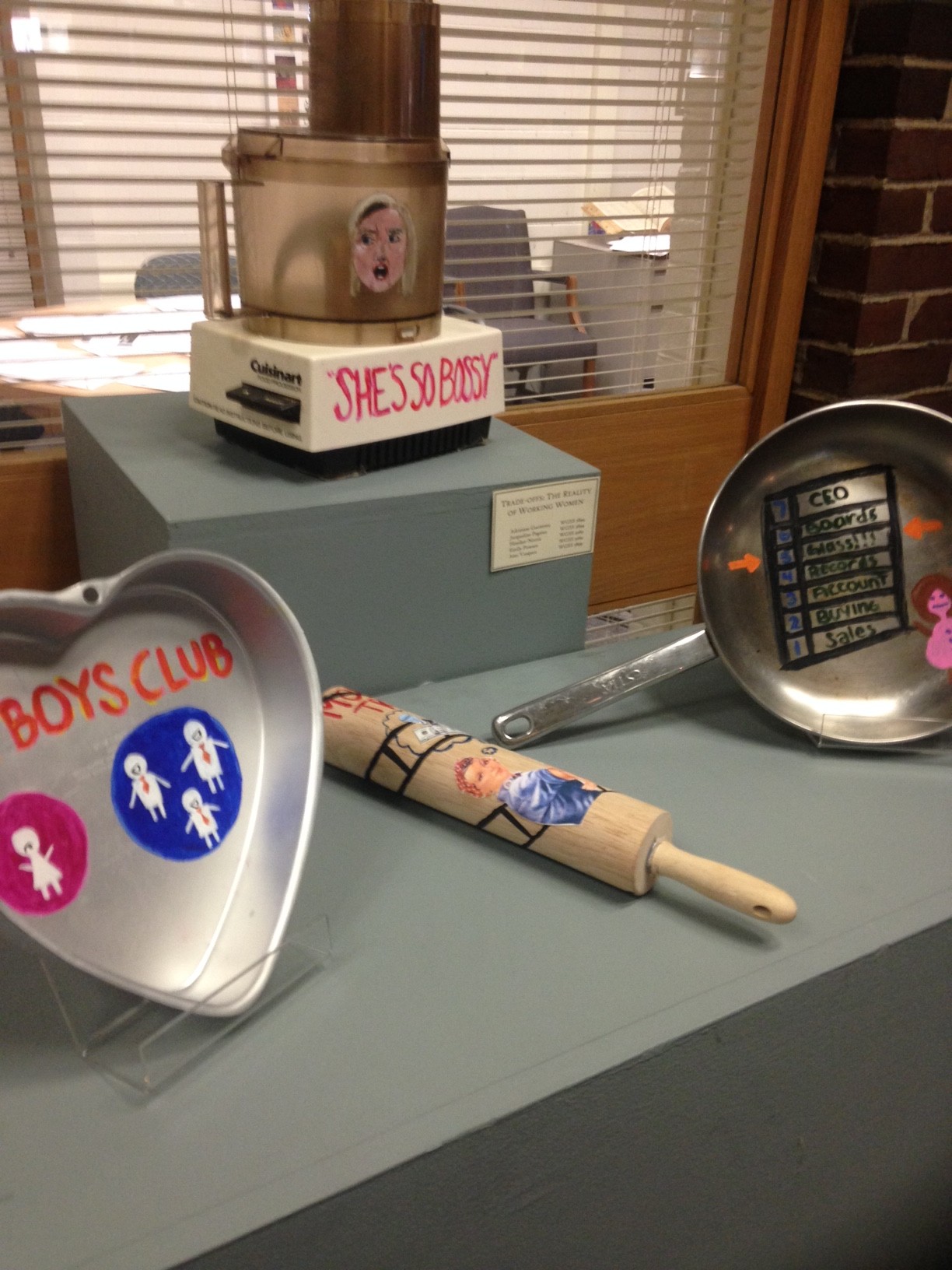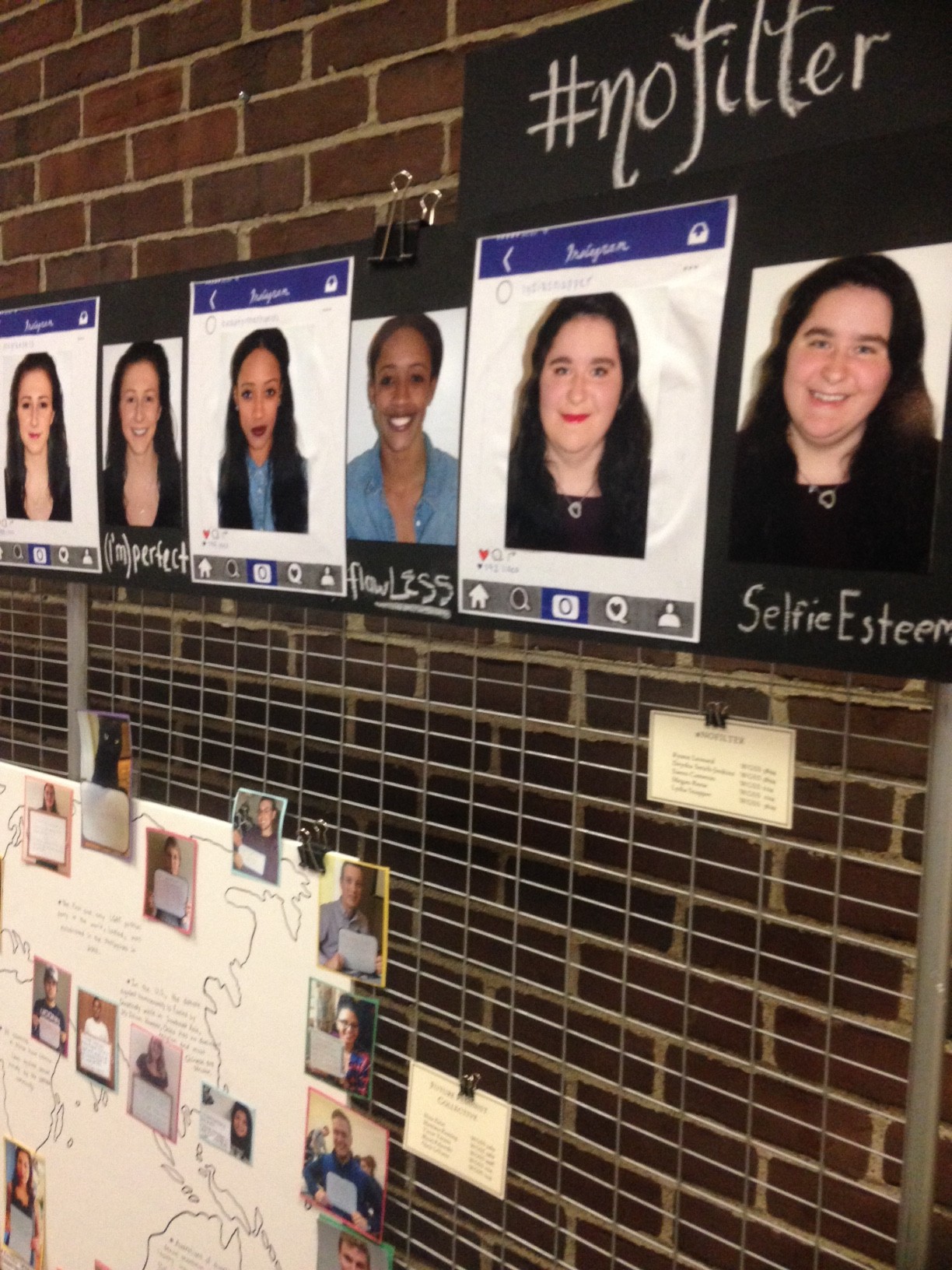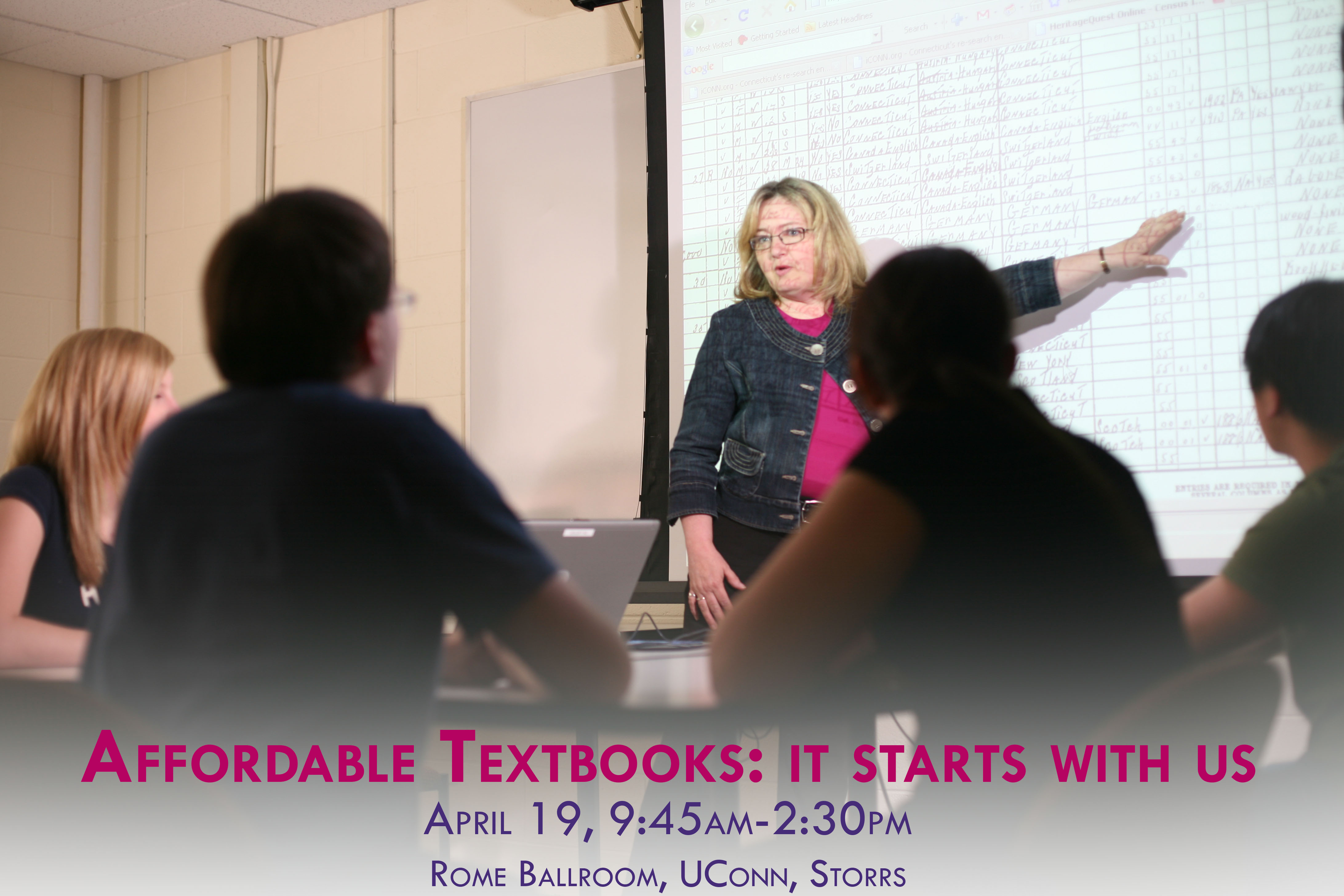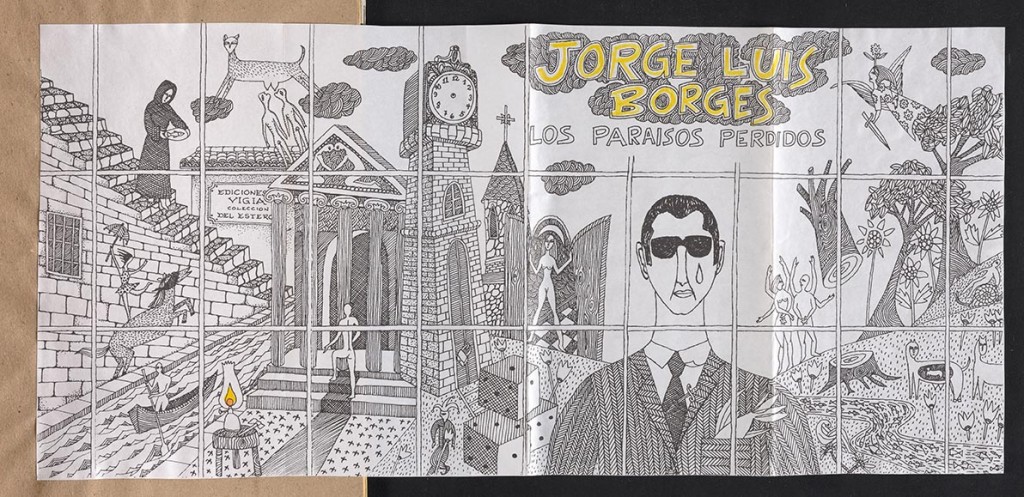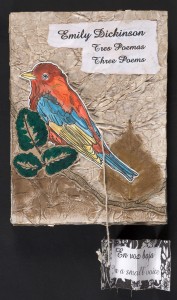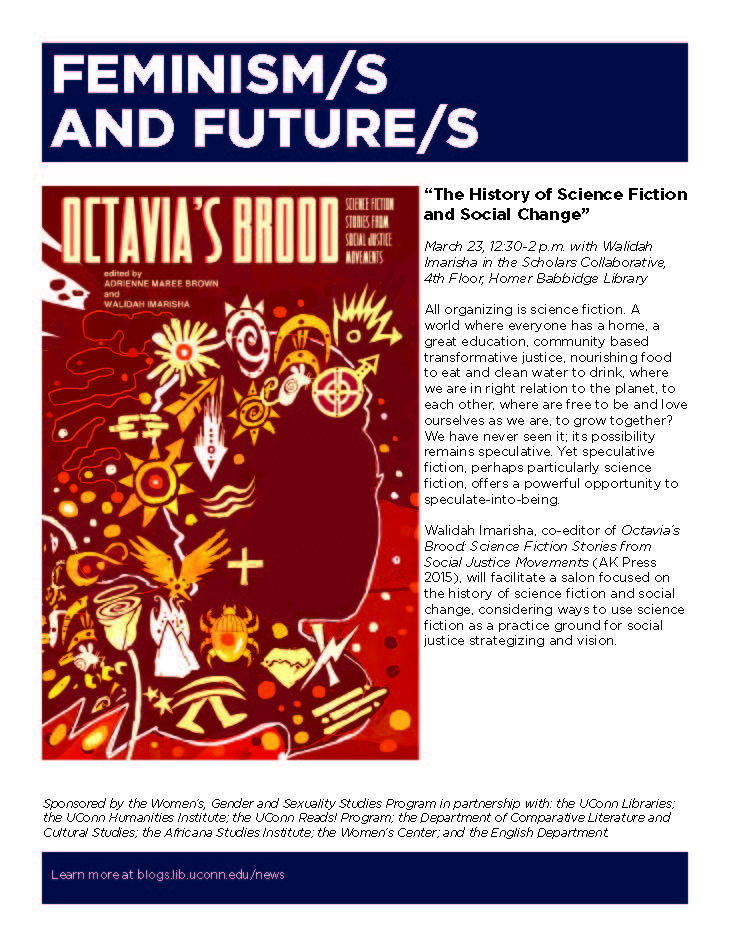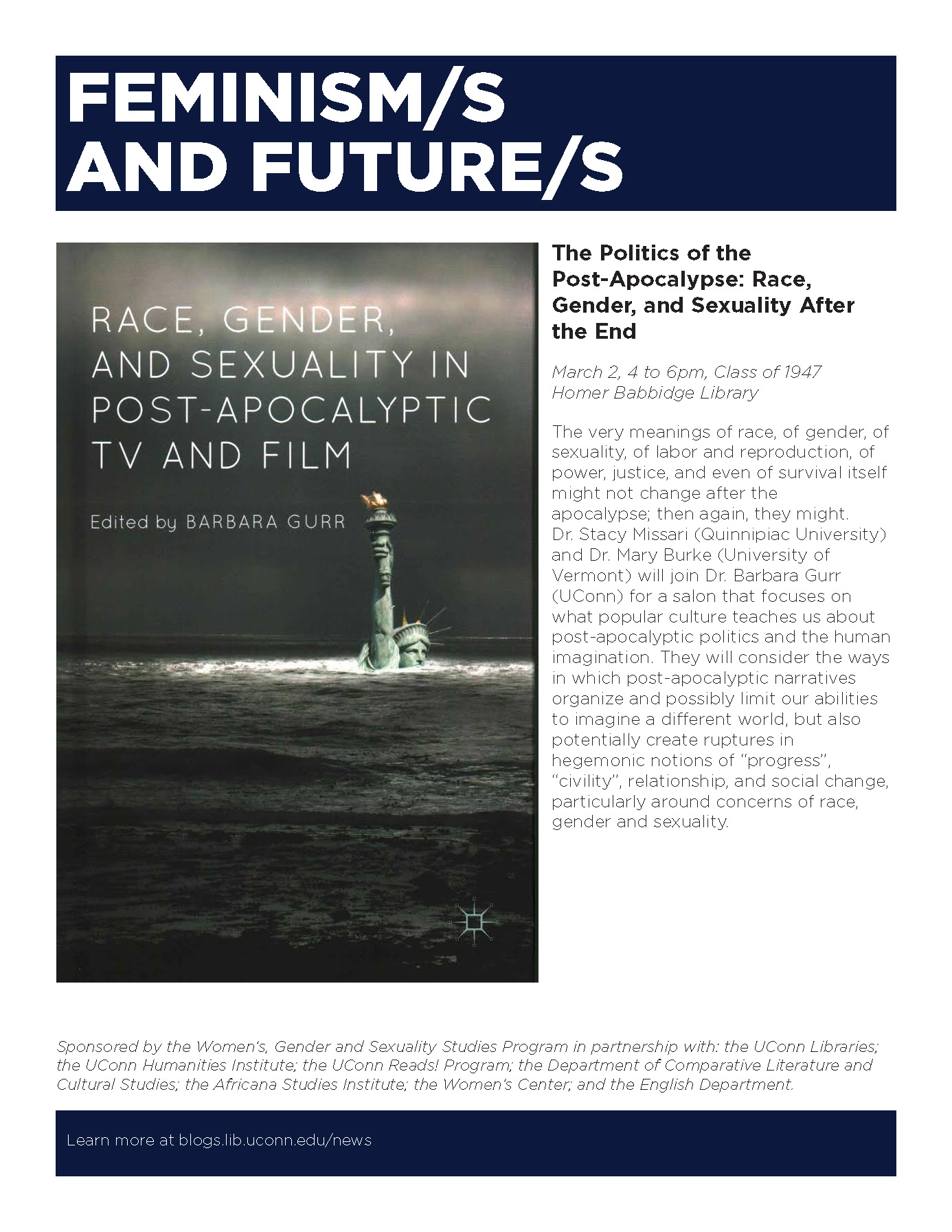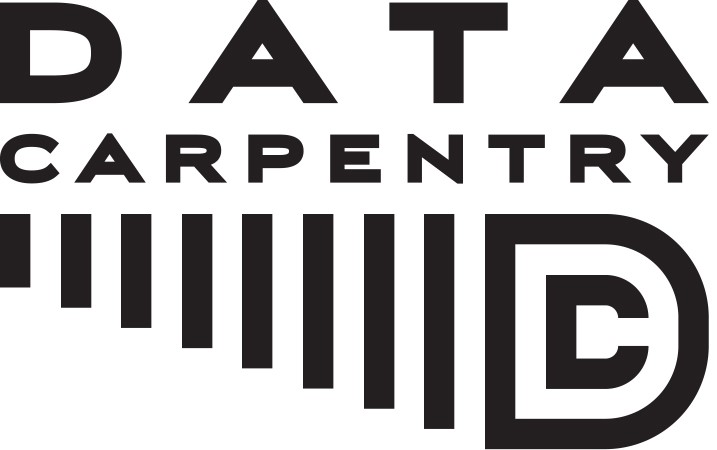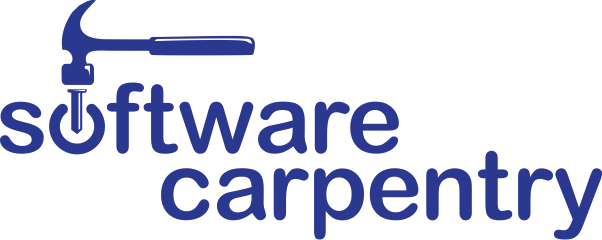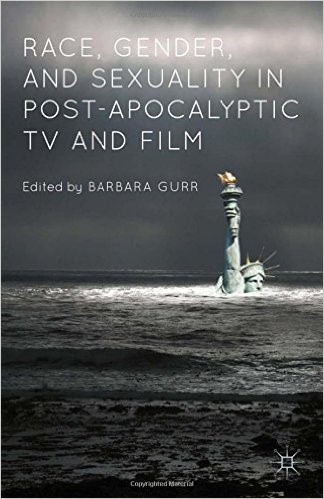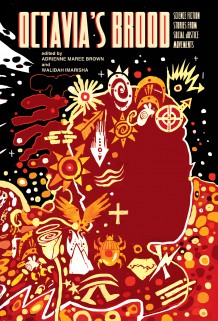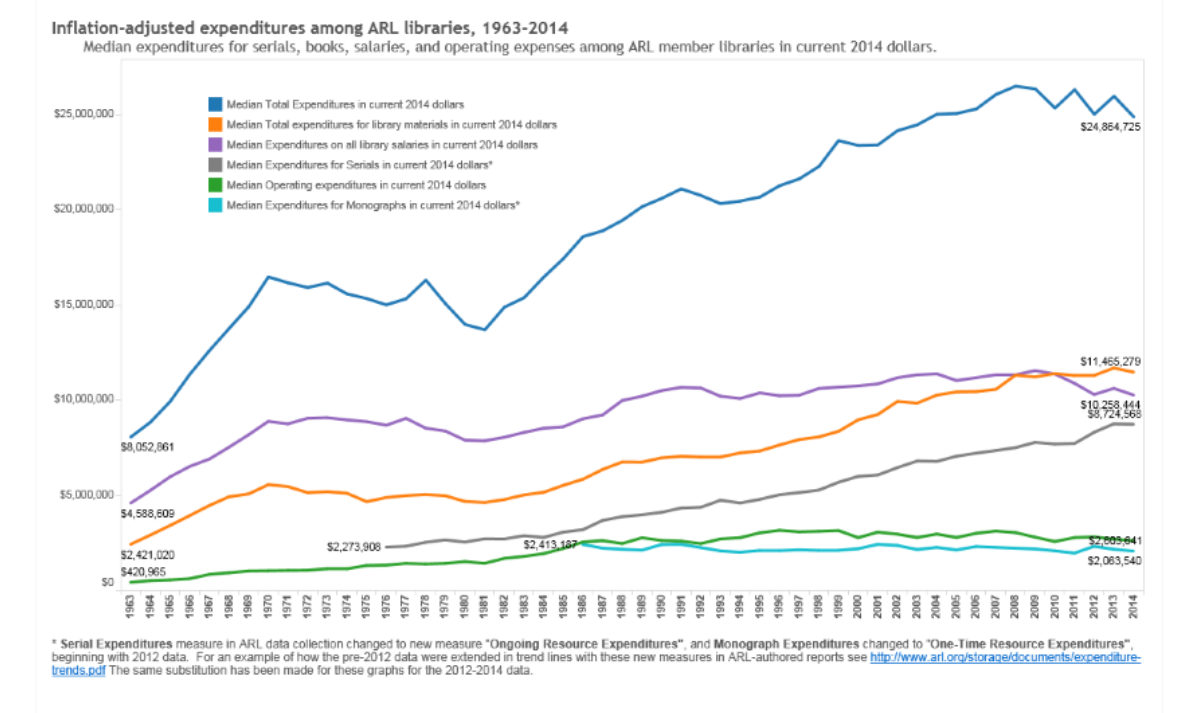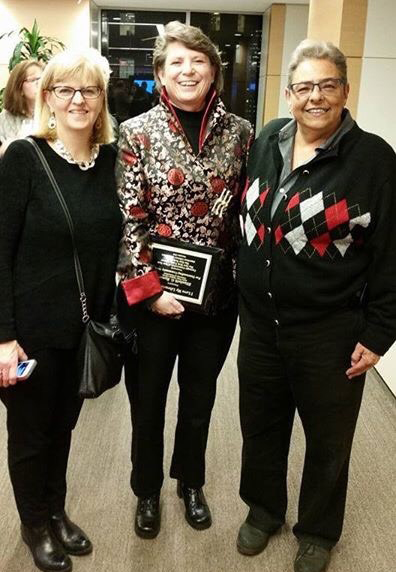
(l to r) Nancy Dryden, Undergraduate Education Services Librarian, Stamford Library; Beth Rumery; and Sue Shontell, Executive Director, New London Housing Authority
Our own Beth Rumery, library director for the Avery Point Campus Library, received the I Love My Librarian Award for her outstanding public service to the community and ongoing commitment to transforming lives through education and lifelong learning. Rumery was one of only 10 librarians within the United States recognized this year for this esteemed honor.
Beth was nominated by Sue Shontell, the Executive Director of the New London Housing Authority for her outreach efforts both to students and faculty at UConn and the community at large. With physical changes to make the library more inviting and a safe location for students to come and discuss issues with sexual orientation, depression and other difficult personal issues, she has created a sense of place within the library. She has also been an active member of the greater Groton community, reaching out to the low income elderly and disabled housing authority and their families. According to the nomination, her work has “opened university speakers to staff and families as a way to reach them and show that they too can go to school, not be intimidated by campuses and connect with their lives.”
As part of the award process, library users nationwide are invited to nominate their favorite librarians working in public, school, college, community college and university libraries. This year more than 1,300 library patrons submitted detailed stories showing how their librarian had an impact on their communities and lives by connecting people with the information access and critical resources they need to succeed in today’s digital age.
Beth received her award, which includes a $5,000 prize, last week at a ceremony in New York City. The event was hosted by Carnegie Corporation of New York, which generously sponsors the award along with The New York Public Library and The New York Times. For more information and a copy of the nomination form, please see ALA’s website at http://www.ilovelibraries.org/lovemylibrarian/2015/15winners
About Carnegie Corporation of New York
Carnegie Corporation of New York was established by Andrew Carnegie in 1911 “to promote the advancement and diffusion of knowledge and understanding.” In keeping with this mandate, the Corporation’s work focuses on the issues that Andrew Carnegie considered of paramount importance: international peace, the advancement of education and knowledge, and the strength of our democracy.
About The New York Public Library
The New York Public Library is a free provider of education and information for the people of New York and beyond. With 92 locations—including research and branch libraries—throughout the Bronx, Manhattan, and Staten Island, the Library offers free materials, computer access, classes, exhibitions, programming and more to everyone from toddlers to scholars, and has seen record numbers of attendance and circulation in recent years. The New York Public Library serves more than 18 million patrons who come through its doors annually and millions more around the globe who use its resources at www.nypl.org. To offer this wide array of free programming, The New York Public Library relies on both public and private funding. Learn more about how to support the Library at nypl.org/support.
About the American Library Association
The American Library Association (ALA) is the oldest and largest library association in the world, with 58,000 members in academic, public, school, government, and special libraries. The mission of the American Library Association is to provide leadership for the development, promotion and improvement of library and information services and the profession of librarianship in order to enhance learning and ensure access to information for all. The ALA administers the I Love My Librarian Award through the ALA’s Public Awareness Office which promotes the value of libraries and librarians.
